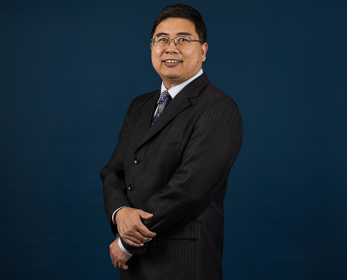Researchers from Edith Cowan University (ECU) have developed a metric scale to assist tourism providers in tapping the growing marathon tourism market.
Professorial research fellow and head of ECU's School of Business and Law’s Centre for Tourism Research, Professor Sam Huang noted that among various forms of sport tourism, marathon tourism stands out by providing a unique experience that enables participants to escape their daily routines and commitments, and advance their personal development in various aspects.
"As health consciousness grows, marathon tourism is gaining popularity due to its benefits for participants' health and well-being. Unlike competitive athletes who focus solely on physical excellence, marathon tourists seek experiential, immersive, and continuous opportunities for self-development.
"Consequently, personal development among marathon tourists plays a significant role in transforming event participation into a type of consumption with long-lasting effect. This personal development often takes the form of self-actualization and self-improvement," Professor Huang said.
Scale to measure running and personal development
In focusing on this concept of personal development, Professor Huang and his team have developed a scale to measure marathon tourists' personal development. The 23-item marathon tourists' personal development (MTPD) scale can be used by travel service providers in their marketing strategies and tailor-make products and services to diverse target markets.
The MTPD can also be used by marathon runners in order to track their progress across several areas of personal development, said Professor Huang.
"Marathon tourism epitomizes the integration of personal growth throughout the entire experience, offering fresh experiential avenues and developmental pathways. Its positive ripple effect not only stimulates personal development but also strengthens tourist loyalty and draws new clientele.
"Similarly, by leveraging the personal development, marathon tourism can effectively explore added value in areas such as brand marketing, event operations, and city image enhancement. Hence, personal development appears to be a critical concept for understanding marathon tourism and its sustainable evolution," he added.
Marathon 'Utopia'
Marathon tourism provides participants with a "Utopian" space where they can temporarily escape societal norms and obligations, transcending their usual identities within a gradually structured travel environment, Professor Huang said.
This process involves "vacuuming up" societal labels and focusing on the journey itself, fostering a sustained flow state that offers mental rejuvenation. Such an environment encourages participants to elicit physical, emotional, and cognitive responses, deepening their self-awareness.
"The vibrant, passionate race atmosphere, combined with genuine interactions with local communities, further enhances this process. It can be argued that the combination of challenges and rewards in marathon tourism transcends mere physical exercise, revealing a transformational dimension of personal development," he said.
The research was published in the Journal of Hospitality and Tourism Management.

 Marathon tourism provides participants with a "Utopian" space where they can temporarily escape societal norms and obligations.
Marathon tourism provides participants with a "Utopian" space where they can temporarily escape societal norms and obligations.



